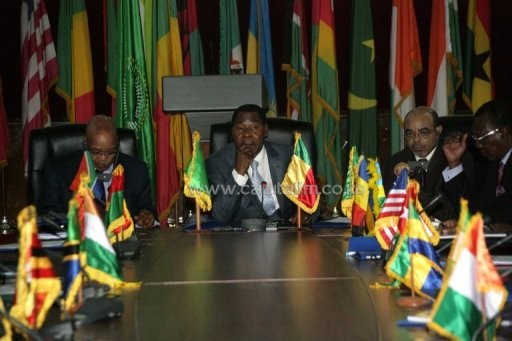– AU has firmer stance than predecessor OAU –
In comparison, the AU has spoken out against unconstitutional changes of government, suspending members and applying sanctions.
Between 2003 and 2012, 12 coups took place in Africa, and the AU suspended eight countries, showing the AU’s “willingness to oppose unconstitutional changes of government”, Vines added.
The AU still has a long way to go, but analysts point out few organisations made up of so many nations can easily find mutual agreement.
“It is an unrealistic expectation to want African countries to speak with one voice on all topics, it’s impossible,” said Paul-Simon Handy of the ISS.
“Look at the European Union,” which has half as many members as the AU, he pointed out.
For the future, AU Commission chair Nkosazana Dlamini-Zuma believes efforts must be focused towards development in Africa.
Development indicators on the continent – including health, education, infant mortality,economic growth and democracy – have improved steadily in the past 50 years.
“The big challenge for the future is going to be to manage expectations from Africa’s rapidly growing urban population,” Cilliers added.
Africa is home to some of the fastest growing economies in the world according to the IMF, and has attracted huge amounts of foreign investment in recent years.
But the bloc holds little day-to-day significance for most of its citizens.
“The AU is not relevant for the ordinary African… the AU is still a distant organisation where leaders meet and express their solidarity and sympathy with one another,” Mehari said.
And while there has been some progress in supporting democracy, the rule of law and human rights, overall AU responses have been “mixed”, Mehari added.
Celebrations on Saturday – when African leaders will be joined by French President Francois Hollande, China’s Vice Premier Wang Yang and US Secretary of State John Kerry – will be followed by a two-day summit.
The agenda will likely include Madagascar – in political deadlock since a 2009 coup – and the eastern Democratic Republic of Congo, where United Nations-backed government soldiers are struggling to quash rebels.
Mali is also expected to be discussed: it is preparing to receive a UN peacekeeping force to support French soldiers fighting Islamist rebels in the desert north since January.
Leaders will look at how to boost integration, a regular agenda item at the AU, although any practical implementation remains distant.
But this summit is about planning for the next 50 years rather than dwelling on the past, so to provide “a clear roadmap of where we should be going,” Dlamini-Zuma said.











































